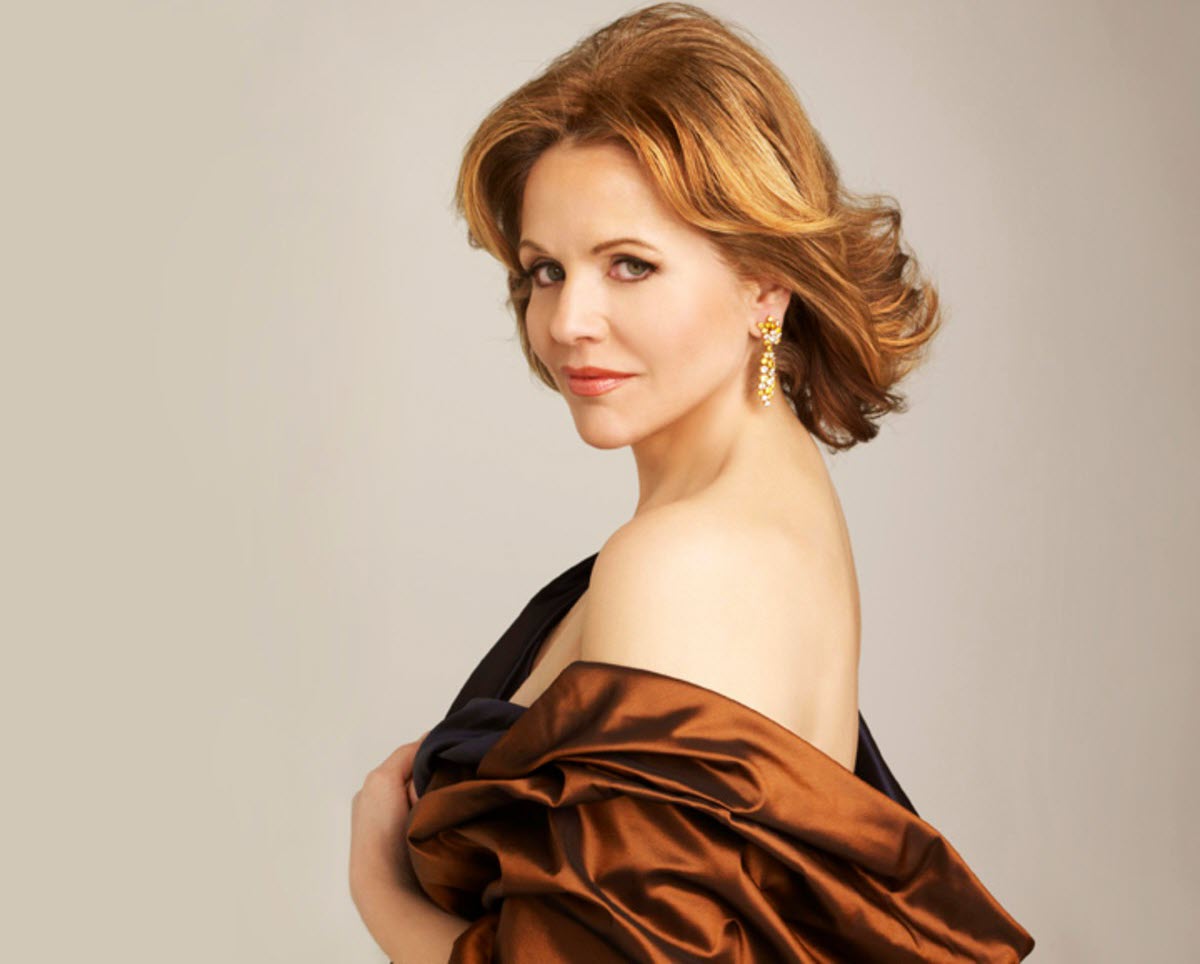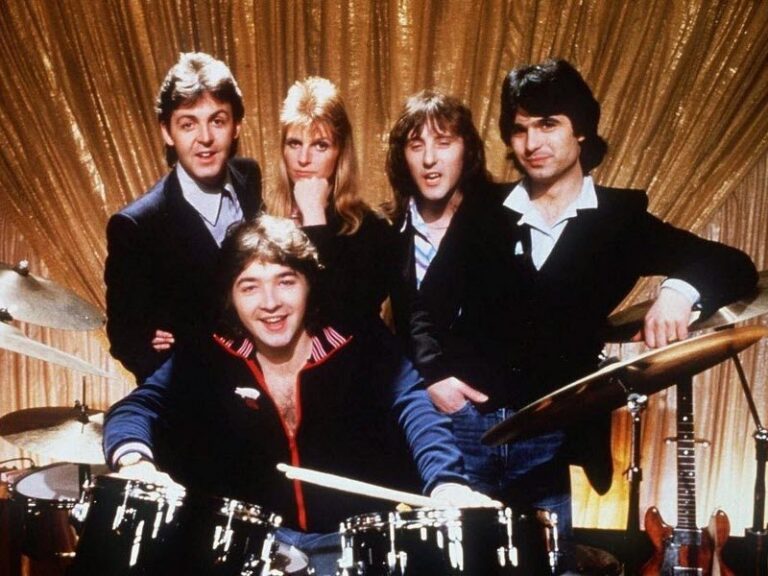Uncover the Most Mesmerizing Voices in Opera History: Discover the Top 15 Opera Singers of All Time!
Maria Callas
Maria Callas, born Maria Anna Cecilia Sofia Kalogeropoulos, was a Greek-American soprano whose extraordinary voice, dramatic intensity, and unparalleled artistry made her one of the most legendary opera singers of the 20th century. Born in New York City in 1923, Callas rose to fame in the 1950s and became known as La Divina, or “The Divine One,” for her exceptional talent and stage presence.
Callas’ voice was characterized by its remarkable range, agility, and emotional depth, allowing her to portray a wide range of characters with unparalleled expressiveness and nuance. Her performances were marked by their intensity, passion, and dramatic flair, earning her acclaim from audiences and critics alike.
Throughout her career, Callas performed in some of the world’s most prestigious opera houses, including La Scala in Milan, the Metropolitan Opera in New York City, and the Royal Opera House in London. Her interpretations of roles in operas by composers such as Verdi, Puccini, and Bellini are considered definitive and continue to inspire singers and opera lovers to this day.
In addition to her vocal talents, Callas was also known for her dedication to her craft, her meticulous preparation, and her commitment to artistic integrity. She approached each role with intelligence, sensitivity, and a deep understanding of the music and text, creating performances that were both musically exquisite and emotionally compelling.
Despite facing personal and professional challenges throughout her life, Callas’ legacy as one of the greatest opera singers of all time is firmly cemented. Her recordings continue to be cherished by opera aficionados, and her influence on the world of opera and classical music remains profound. Maria Callas may have passed away in 1977, but her voice and artistry continue to enchant and inspire audiences around the world, ensuring that La Divina’s legacy will endure for generations to come.
Luciano Pavarotti
Luciano Pavarotti, often hailed as one of the greatest tenors in the history of opera, was an Italian singer whose exceptional voice, charismatic stage presence, and unparalleled artistry made him a beloved figure around the world. Born on October 12, 1935, in Modena, Italy, Pavarotti began his vocal training at a young age and made his professional debut in 1961, quickly rising to prominence as one of the leading opera singers of his generation.
Pavarotti’s voice was characterized by its rich, powerful tone, effortless high notes, and exquisite phrasing, allowing him to excel in a wide range of operatic roles. His performances were marked by their emotional depth, technical mastery, and undeniable passion, earning him acclaim from audiences and critics alike.
Throughout his illustrious career, Pavarotti performed on the world’s most prestigious stages, including La Scala in Milan, the Metropolitan Opera in New York City, and the Royal Opera House in London. His interpretations of roles in operas by composers such as Verdi, Puccini, and Donizetti are considered definitive and continue to be celebrated for their beauty and brilliance.
In addition to his operatic repertoire, Pavarotti was also known for his popular crossover performances, collaborating with artists from various genres and reaching a wider audience with his renditions of popular songs and duets. His charismatic stage presence and infectious personality endeared him to fans around the world, making him one of the most beloved and recognizable figures in the world of classical music.
Pavarotti’s impact on the world of opera and classical music cannot be overstated. His recordings continue to be cherished by music lovers, and his influence on future generations of singers remains profound. Though he passed away in 2007, Pavarotti’s legacy as one of the greatest tenors of all time lives on through his timeless music and enduring contributions to the world of opera.
Renée Fleming
Renée Fleming is an American soprano singer known for her exceptional vocal talent and versatile repertoire, spanning opera, classical music, jazz, and contemporary works. Born on February 14, 1959, in Indiana, Pennsylvania, Fleming has established herself as one of the leading opera singers of her generation.
Fleming’s career began in the 1980s, and she quickly gained recognition for her rich and expressive voice, as well as her ability to interpret a wide range of roles with depth and nuance. She has performed on the world’s most prestigious opera stages, including the Metropolitan Opera in New York, La Scala in Milan, and the Royal Opera House in London.
Fleming is particularly acclaimed for her interpretations of roles in operas by composers such as Mozart, Richard Strauss, Giuseppe Verdi, and Richard Wagner. Her performances in works like Strauss’s “Der Rosenkavalier” and Verdi’s “La Traviata” have earned her widespread praise from critics and audiences alike.
In addition to her opera career, Renée Fleming is known for her performances in concert halls and recital venues around the world. She has collaborated with leading orchestras and conductors, showcasing her vocal versatility and mastery of a diverse range of musical styles.
Fleming’s artistry extends beyond the classical realm, as she has also explored jazz, pop, and contemporary music. She has recorded albums featuring songs from Broadway musicals, jazz standards, and modern compositions, demonstrating her versatility as a vocalist and her willingness to explore new artistic avenues.
Throughout her career, Renée Fleming has received numerous awards and honors, including multiple Grammy Awards, the National Medal of Arts, and the Swedish Polar Music Prize. She is widely regarded as one of the greatest sopranos of her generation, admired for her impeccable technique, expressive interpretation, and enduring impact on the world of classical music.
Plácido Domingo
Plácido Domingo is a world-renowned Spanish opera singer, conductor, and administrator, recognized for his exceptional vocal talent, versatility, and longevity in the opera world. Born on January 21, 1941, in Madrid, Spain, Domingo has enjoyed a remarkable career spanning over six decades, during which he has become one of the most celebrated and influential figures in the history of opera.
Domingo is known for his powerful and expressive tenor voice, which has graced the stages of the world’s most prestigious opera houses, including the Metropolitan Opera in New York, La Scala in Milan, and the Royal Opera House in London. He is particularly acclaimed for his interpretations of roles in operas by composers such as Giuseppe Verdi, Giacomo Puccini, Richard Wagner, and Georges Bizet.
In addition to his operatic performances, Domingo has also made significant contributions as a conductor and administrator. He has led orchestras and opera companies around the world, including serving as the general director of the Los Angeles Opera from 2003 to 2019. Domingo’s leadership has helped to shape the future of opera and support the next generation of young artists.
Throughout his illustrious career, Plácido Domingo has received numerous awards and honors, including multiple Grammy Awards, honorary doctorates, and the Presidential Medal of Freedom. He is widely regarded as one of the greatest opera singers of all time, admired for his vocal prowess, dramatic intensity, and tireless dedication to his craft.
Despite facing some controversies later in his career, Domingo’s artistic legacy remains intact, and he continues to be revered by audiences around the world for his extraordinary talent and contributions to the world of opera.
Joan Sutherland
Joan Sutherland, known as “La Stupenda” (The Stunning One), was an Australian soprano whose exceptional vocal range, agility, and dazzling coloratura technique made her one of the most celebrated opera singers of the 20th century. Born on November 7, 1926, in Sydney, Australia, Sutherland began her singing career in her native country before making her international debut in 1952 at the Royal Opera House in London.
Sutherland’s voice was characterized by its purity, power, and extraordinary flexibility, allowing her to effortlessly navigate the most demanding roles in the bel canto repertoire. Her performances were marked by their technical precision, vocal brilliance, and dramatic intensity, earning her acclaim from audiences and critics around the world.
Throughout her illustrious career, Sutherland performed on the world’s most prestigious stages, including La Scala in Milan, the Metropolitan Opera in New York City, and the Paris Opera. Her interpretations of roles in operas by composers such as Donizetti, Bellini, and Rossini are considered definitive and continue to be revered for their beauty and artistry.
In addition to her vocal talents, Sutherland was also known for her commanding stage presence, striking beauty, and regal demeanor, which made her a captivating presence on stage. Her recordings are cherished by opera aficionados, and her influence on the world of opera and classical music remains profound.
Sutherland’s impact on the opera world cannot be overstated. Her extraordinary voice, unparalleled technique, and enduring legacy have secured her place as one of the greatest sopranos of all time. Though she passed away in 2010, Joan Sutherland’s legacy as “La Stupenda” lives on through her timeless recordings and the countless lives she touched with her artistry.
José Carreras
José Carreras is a Spanish operatic tenor who rose to fame as one of the Three Tenors, alongside Luciano Pavarotti and Plácido Domingo. Born on December 5, 1946, in Barcelona, Spain, Carreras is known for his rich and expressive voice, as well as his passionate and emotive performances on the opera stage.
Carreras began his operatic career in the 1970s and quickly gained recognition for his exceptional talent and versatility. He performed leading roles in operas by composers such as Giuseppe Verdi, Giacomo Puccini, and Richard Strauss, earning acclaim for his interpretations of characters like Rodolfo in “La Bohème,” Cavaradossi in “Tosca,” and Don José in “Carmen.”
In addition to his operatic performances, Carreras has also appeared in concerts and recitals around the world, showcasing his vocal prowess and repertoire of classical and popular songs. He is known for his passionate and heartfelt interpretations of Spanish songs and zarzuelas, as well as his collaborations with leading orchestras and conductors.
Carreras’s career reached new heights in the 1990s when he joined forces with Luciano Pavarotti and Plácido Domingo to form the Three Tenors. The trio’s performances, including their iconic concert in Rome in 1990, brought opera to a wider audience and cemented their status as three of the greatest tenors of all time.
Throughout his career, José Carreras has received numerous awards and honors, including Grammy Awards, honorary doctorates, and the Prince of Asturias Award for the Arts. He is widely regarded as one of the most beloved and influential tenors of his generation, admired for his vocal beauty, dramatic intensity, and enduring passion for music.
Montserrat Caballé
Montserrat Caballé was a Spanish soprano renowned for her remarkable vocal range, exquisite technique, and captivating stage presence. Born on April 12, 1933, in Barcelona, Spain, Caballé rose to international prominence during the 1960s and 1970s, becoming one of the most celebrated opera singers of her generation.
Caballé’s voice was characterized by its purity, power, and versatility, allowing her to excel in a wide range of operatic roles spanning from lyric to dramatic soprano repertoire. Her performances were marked by their emotional depth, technical brilliance, and remarkable musicality, earning her acclaim from audiences and critics alike.
Throughout her illustrious career, Caballé performed on the world’s most prestigious stages, including La Scala in Milan, the Metropolitan Opera in New York City, and the Royal Opera House in London. Her interpretations of roles in operas by composers such as Verdi, Puccini, and Donizetti are considered definitive and continue to be revered for their beauty and artistry.
In addition to her operatic repertoire, Caballé was also known for her collaborations with popular artists from other genres, including Freddie Mercury of Queen, with whom she recorded the iconic duet “Barcelona.”
Caballé’s impact on the world of opera and classical music is immeasurable. Her recordings are cherished by opera aficionados, and her influence on future generations of singers remains profound. Though she passed away in 2018, Montserrat Caballé’s legacy as one of the greatest sopranos of all time lives on through her timeless recordings and the countless lives she touched with her artistry.
Birgit Nilsson
Birgit Nilsson was a Swedish dramatic soprano renowned for her powerful voice, remarkable vocal range, and extraordinary stamina. Born on May 17, 1918, in Västra Karup, Sweden, Nilsson rose to international acclaim as one of the preeminent Wagnerian sopranos of the 20th century.
Nilsson’s career began in the 1940s, and she quickly gained recognition for her commanding stage presence and impeccable technique. She became particularly associated with the dramatic soprano roles of Richard Wagner, including Brünnhilde in “Der Ring des Nibelungen,” Isolde in “Tristan und Isolde,” and Elektra in “Elektra.”
Nilsson’s voice was characterized by its immense power, steely tone, and remarkable clarity, which allowed her to effortlessly soar above the orchestra in the most demanding roles. She was also known for her ability to sustain long, sustained notes with unwavering precision, earning her the nickname “The Queen of the High Cs.”
In addition to her Wagnerian repertoire, Nilsson also excelled in the works of composers such as Richard Strauss, Giuseppe Verdi, and Giacomo Puccini. Her performances in roles like Turandot, Lady Macbeth, and Salome further showcased her versatility and artistry as a singer.
Throughout her illustrious career, Birgit Nilsson performed at the world’s leading opera houses, including the Metropolitan Opera in New York, the Royal Opera House in London, and the Bayreuth Festival in Germany. She was universally acclaimed for her interpretations of Wagner’s heroines and became one of the most celebrated sopranos of her generation.
Birgit Nilsson’s legacy continues to be celebrated and revered by opera lovers around the world. Her recordings remain prized for their vocal brilliance and dramatic intensity, and she is remembered as one of the greatest sopranos in the history of opera.
Franco Corelli
Franco Corelli was an Italian tenor renowned for his powerful voice, dramatic intensity, and electrifying stage presence. Born on April 8, 1921, in Ancona, Italy, Corelli rose to prominence during the 1950s and 1960s, becoming one of the most celebrated opera singers of his generation.
Corelli’s voice was characterized by its robustness, ringing top notes, and thrilling dramatic power, allowing him to excel in a wide range of operatic roles. His performances were marked by their emotional depth, technical brilliance, and magnetic charisma, earning him acclaim from audiences and critics alike.
Throughout his illustrious career, Corelli performed on the world’s most prestigious stages, including La Scala in Milan, the Metropolitan Opera in New York City, and the Royal Opera House in London. His interpretations of roles in operas by composers such as Verdi, Puccini, and Giordano are considered definitive and continue to be revered for their passion and intensity.
In addition to his operatic repertoire, Corelli was also known for his appearances in concert halls and on the concert stage, where his powerful voice and charismatic presence captivated audiences around the world.
Corelli’s impact on the world of opera and classical music is immeasurable. His recordings are cherished by opera aficionados, and his influence on future generations of singers remains profound. Though he passed away in 2003, Franco Corelli’s legacy as one of the greatest tenors of all time lives on through his timeless recordings and the countless lives he touched with his artistry.
Mirella Freni
Mirella Freni was an Italian soprano acclaimed for her velvety voice, exquisite phrasing, and deeply expressive interpretations. Born on February 27, 1935, in Modena, Italy, Freni began her singing career at a young age and quickly rose to prominence as one of the leading sopranos of her generation.
Freni’s voice was characterized by its warmth, purity, and emotional depth, allowing her to excel in a wide range of operatic roles. Her performances were marked by their lyrical beauty, technical precision, and profound emotional impact, earning her acclaim from audiences and critics alike.
Throughout her illustrious career, Freni performed on the world’s most prestigious stages, including La Scala in Milan, the Metropolitan Opera in New York City, and the Royal Opera House in London. Her interpretations of roles in operas by composers such as Puccini, Verdi, and Mozart are considered definitive and continue to be revered for their artistry and authenticity.
In addition to her operatic repertoire, Freni was also known for her collaborations with renowned conductors and fellow singers, as well as her appearances in concert halls and on the concert stage, where her captivating presence and effortless vocalism captivated audiences around the world.
Freni’s impact on the world of opera and classical music is immeasurable. Her recordings are cherished by opera aficionados, and her influence on future generations of singers remains profound. Though she passed away in 2020, Mirella Freni’s legacy as one of the greatest sopranos of all time lives on through her timeless recordings and the countless lives she touched with her artistry.
Leontyne Price
Leontyne Price is an American soprano who is celebrated as one of the greatest opera singers of the 20th century. Born on February 10, 1927, in Laurel, Mississippi, Price rose to international prominence in the 1950s and 1960s, becoming known for her rich, velvety voice, impeccable technique, and dramatic presence on the opera stage.
Price’s career began in the mid-1950s when she made her debut at the San Francisco Opera as Madame Lidoine in Francis Poulenc’s “Dialogues of the Carmelites.” She quickly garnered attention for her stunning vocal abilities and expressive interpretations of a wide range of operatic roles.







